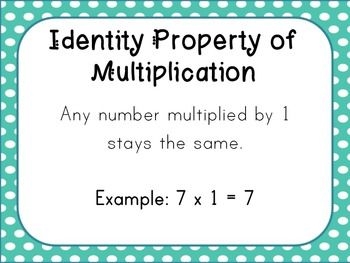
When planning to send a child to school, the surest step for parents should be to assess the readiness of a son or daughter for such changes in life. This will help determine if the child should go to school now or if it is better to wait another year. Also, the readiness assessment will help organize the preparation of the child correctly, taking into account his weaknesses.

How to determine readiness?
Previously, the main criterion of readiness for schooling was considered the mental development of a child. Now the focus is on psychological readiness. She has several important criteria, among which:
- Intelligent readiness. It determines the development of such mental functions of the child as perception, thinking, imagination and memory. For example, a child at the age of 6-7 years old should memorize from 3 to 5 words out of 10 words heard, be able to find “treasures” using a room scheme, combine objects based on similar signs, and so on.
- Social readiness. The child should be able to build relationships with both peers and adults. For successful adaptation in a new team, it is important to be able to find a compromise, resolve conflicts, and be tolerant. By the age of 6-7, most children already know how to control their behavior and are able to follow the rules, for example, not talking during the lesson, listening to the teacher. If the child's behavior in the lesson is inadequate, it means that he is not socially ready for learning. In addition, the child must have adequate self-esteem. If preschoolers assess themselves biasedly high, then 6-7-year-olds should be able to admit mistakes and adequately respond to criticism.
- Personal readiness. A 7-year-old child has a need to acquire new knowledge and change his status - to become a schoolboy. Motivation can be different, for example, to be like an older brother, carry a portfolio or stay up after lunch, but it is best if the child associates school with the acquisition of knowledge. At the same time, it is very important to have a positive attitude towards school and an understanding of why study is needed.
To learn how to determine a child's readiness for school, see the video of the Youtube channel "Child and Family Psychology Online".
How to prepare psychologically?
A huge mistake of parents is called intimidation of the child, for example, they tell him that because of homework there will be no more time for games, at school he will have bad marks and the like. It is very important to ensure that the child is not afraid of school and treats it well.
Emphasize that he will make new friends, learn a lot of new and interesting things, be able to attend different circles, find a hobby. Share stories about your learning, telling what subjects you liked, what kind of teacher was, what funny happened to you during your school years.
However, one should not unduly idealize schooling, painting everything in too rosy colors. If the child does not know that difficulties and some problems are possible during learning, he will be very disappointed after the first bad grade or remark.

It is a good idea to play School with the preschooler. In such a game, you can simulate different situations using toys. You should also go to school with your child in advance and show him the situation. It is great if the chosen school has preparatory lessons or open days.
Do not forget about your own mood. It will be easier for a child to adapt to school if the parents have a positive attitude towards the learning process and show by their behavior that the new status of the child (schoolchild) is important for the family.
Possible difficulties
Lack of discipline
If the child is restless and also does not follow the right rules, going to school can be a big problem. The child may not have the patience to get things done. In this case, he needs the help of his parents - let the mother do the tasks with the baby for some time.
Also, many children find it difficult to work according to the rules, and games that have some restrictions will help to teach discipline.

Absent-mindedness and inattention
These qualities can have a significant impact on academic performance and upset parents. The child is in no hurry to complete the task, is distinguished by forgetfulness and is often distracted. Experts do not consider this condition to be a psychological problem, but associate it with the predominant development of the right hemisphere. As a rule, by the age of ten, the problem of absent-mindedness disappears by itself.
To balance the work of the child's cerebral hemispheres, finger games, finger drawing, sculpting, lacing games and similar activities are used.

Unwillingness to learn
To keep the child interested, parents need to emphasize that the educational process is more like a game than a duty. Support your child's curiosity and desire to learn new things that are naturally present in him. Read more about this in the article on how to instill in your child a love of learning.
Preparatory lessons
Many development centers and tutors these days offer classes in which a child is taught to read and count. However, the attitude of teachers to such activities is ambiguous. Some have a positive attitude towards them, others believe that the child should learn how to read and write already at school.

An example of a program for psychological preparation of children for school
Classes of this preparatory course are held 6 times a week for 40 minutes a day. In the middle of each session, two five-minute breaks should be taken. The duration of the preparation is 16 weeks.
In total, the child does 4 hours a week. Lessons each week include lessons for developing voluntary attention, thinking (logical, imaginative), memory (auditory, visual-imagery), perception and imagination. In addition, one lesson per week is aimed at developing strength, mobility and flexibility of the fingers (fine motor skills of the hands).
An approximate lesson plan may be as follows:
Material for such activities can be found in various manuals for preschoolers.
What a child needs to know in order to make the adaptation to school easier, see the video of the channel on Youtube "Child and Family Psychology Online".
Generalization of the material is a skill that every child needs. See about this in the video of the Youtube channel "Child and Family Psychology Online".
To develop the child's ability to work according to the model, watch the video of the channel on Youtube "Child and family psychology online"
Deal with the development of phonemic hearing through the video channel on Youtube "Child and Family Psychology Online", so that the child can easily analyze words by sounds.
Home Preparation Games
Given the fact that preschoolers learn most easily through the game, preparatory classes at home should be based on games.
Fine motor skills:
- Pencil shading.
- Stringing beads or pasta.
- Painting with paints.
- Tie shoelaces.
- Cutting from paper.
- Modeling from clay or plasticine.
- Creation of applications.
- Games with a mosaic and constructor.
- Embroidery and knitting.
- Tying knots on a rope.

Memory games:
- Comparison of pictures.
- Remember the actions of the mother, for example, during the preparation of the dough.
- Retelling of a fairy tale.
- Discussion in the evening what happened during the day.
- Retelling of the cartoon.
- A description of the item removed from view.

Attention games:
- Find an object in the room whose name begins with a certain letter.
- Read the verse to your child and have him clap his hands when the word begins with a specific letter.
- Learn to do several things at once, such as looking at a picture and listening to a story.
- Lay out 5 toys in front of the child, and then swap them and invite the child to return them to their places.
- Give the child a leaf with groups of numbers and offer to cross out a certain number.
Speech games:
- Tell the child a word with which he can form phrases, for example, you say "pie" and the child answers "cherry pie", "sweet pie", "bake a pie".
- Invite your child to voice your actions like a journalist, for example, how you cook soup or sew on a button.
- Tell the child the first syllable, and he will continue the word.
- Retelling cartoons, books, yesterday's events.
- Read with your child.

Thinking games:
- Pronounce words in reverse (for this game, words of 3-4 letters are selected).
- Find the item that mom named the other way around.
- Tie up items that mom is using at the moment, for example, what is common between a vacuum cleaner and a broom.
- Solving puzzles and riddles.
- Come up with a story from pictures.
- Compose a picture from different geometric shapes.
- Make a sentence out of words.
- Make a story out of pictures.
- Draw a sequel to the comic.
- Come up with a continuation of the tale.
Games for spatial representation:
- Find an object in the room that mom calls. Encourage the child how to proceed, such as "take a step to the right, then step forward, look up."
- Find an item on the "map" of the room, marking it on the plan with a cross.
- Drawing numbers, letters and pictures.
- Examination of maps and diagrams.
- Play sea battle.

Games for emotional development:
- The mother names the action (for example, reading, dusting, or eating chocolate), and the child portrays the attitude towards him.
- Imagine that the subject came to life and tell how it might feel, as well as what kind of mood it would have.
- Look at other people's faces and gauge their emotions.
- When reading a fairy tale, ask the child how the hero feels.
- Talk to your child often about your feelings in different situations.

Imagination games:
- Invite your child to depict the hidden object with poses and gestures.
- We look at vegetables and discuss what they look like.
- Connecting parts of objects in the figure.
- Imagine enlarging and shrinking objects, and then drawing or sculpting them. For example, it can be a tiny elephant or a huge cat.
- Discuss how a familiar object can be used in an unusual way.
To form the child's ideas about time, conduct the classes shown in the video of the Youtube channel "Child and Family Psychology Online".
Daily regime
Correction of the child's day regimen is advised to do about a month before the first classes at school. It is very important to develop a regime in which the child will get enough sleep, eat on time, have time to do homework, as well as walk and play.
The child should understand that homework is a responsible job that is done first of all, and after that you can go for a walk or take up toys.
If the child attended kindergarten, there should be no problems with building a suitable regime. It is quite difficult for children who do not attend kindergarten to wake up at 7 o'clock in the morning, so they should be taught to get up earlier in advance.
Let the child be busy with some useful things in the first half of the day, and leave all the entertainment and rest for the time after lunch. Also, pay attention to getting to bed on time, which is also important for early awakenings.

Child health
In preparation for school, the health of a son or daughter should be given special attention. This primarily refers to the state of immunity. In preschool institutions, tempering procedures, physical education lessons and timely vaccination are used to maintain it. If the child does not go to kindergarten, it all becomes the concern of the parents.
The child must:
- Walk in the fresh air every day.
- Eat enough vitamin-rich foods.
- Get tested by specialists.

Tips for preparing for school
- You should start preparing for school in advance. Choose the school, the desired profile of education, get to know the teacher, take a closer look at the children who attend the institution. You need to decide whether your child will go to school near your home or go to an educational institution in another part of the city. Think about the possible difficulties, for example, can you take the child, who will be with the child after school.
- When studying with your child at home, stick to the plan and teach the lessons systematically. Only through regular practice will you be able to cover all the topics you need evenly.
- When setting up a study space in your child's room, allow your daughter or son to participate in the process. Let the child independently choose a portfolio, office supplies, clothes and other things.
How are classes in preparation for school for children 6-7 years old, see in the video of the "Planet of Children" channel.



